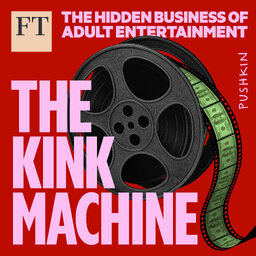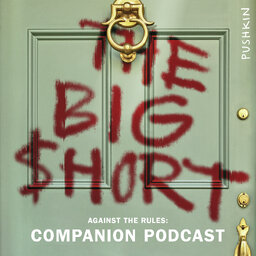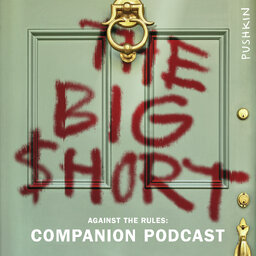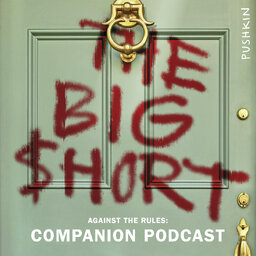SBF’s trial has been on for three days, and a lot has happened: jury selection, opening statements, and the first witnesses. Pushkin co-founder Jacob Weisberg sits down with reporter Lidia Jean Kott and Rebecca Mermelstein, a partner at the law firm O’Melveny and Myers, to talk about what’s happened in court so far.
This conversation was recorded on October 5 at 3 pm ET.
Questions for Michael? Submit them by clicking the link in our show notes or visiting atrpodcast.com
To listen to all of our coverage ad-free, sign up for Pushkin plus on the Against The Rules show page in Apple Podcasts or at Pushkin.fm/plus
In 1 playlist(s)
Against the Rules: The Big Short Companion
Michael Lewis’s best-selling book The Big Short is now 15 years old. The Oscar-winning movie based o…Social links
Follow podcast
Recent clips

From The Kink Machine: The Hidden Business of Pleasure
31:30

Live with Nicolle Wallace
40:31

Michael Burry Speaks
36:22
 Against the Rules: The Big Short Companion
Against the Rules: The Big Short Companion